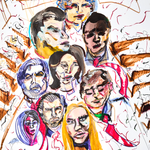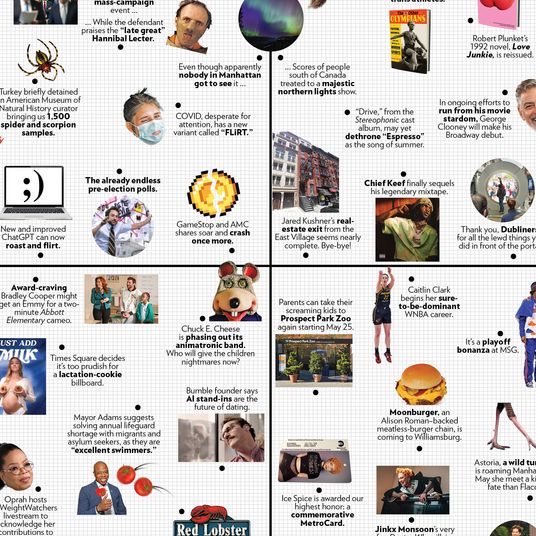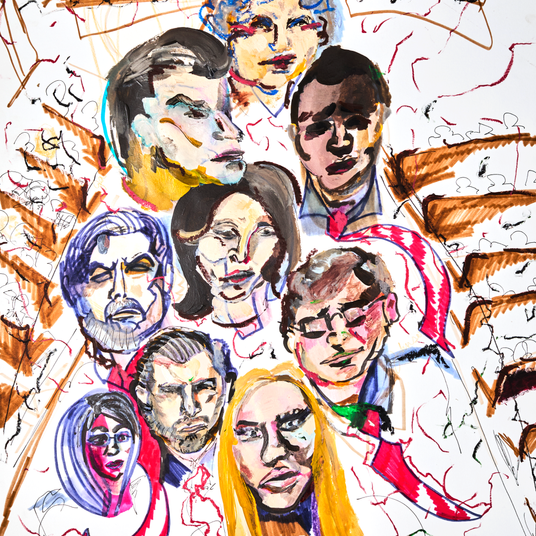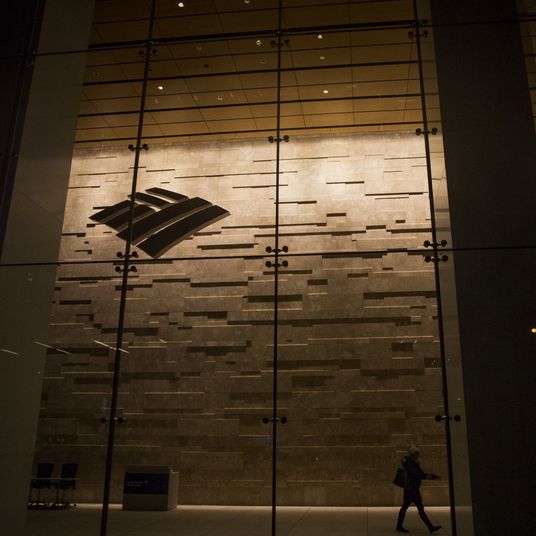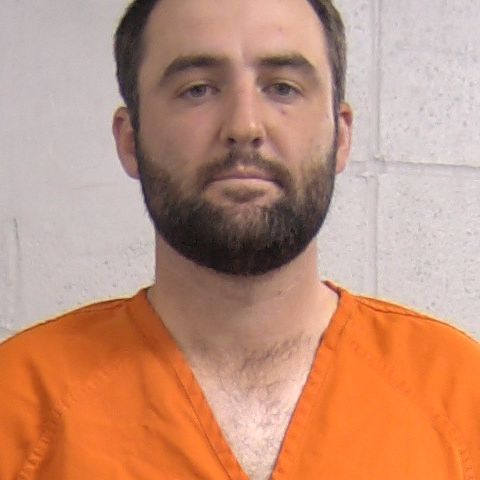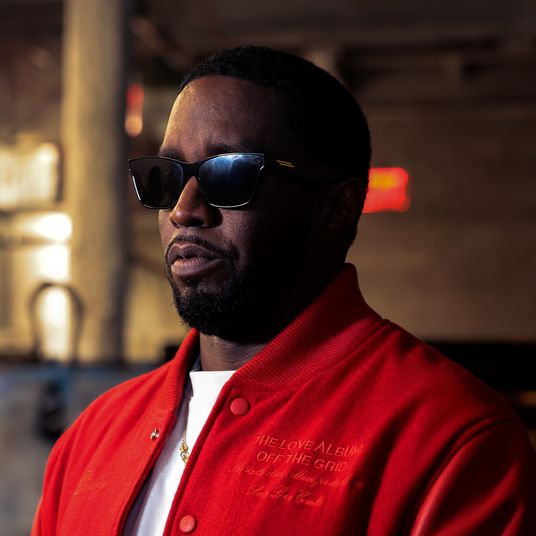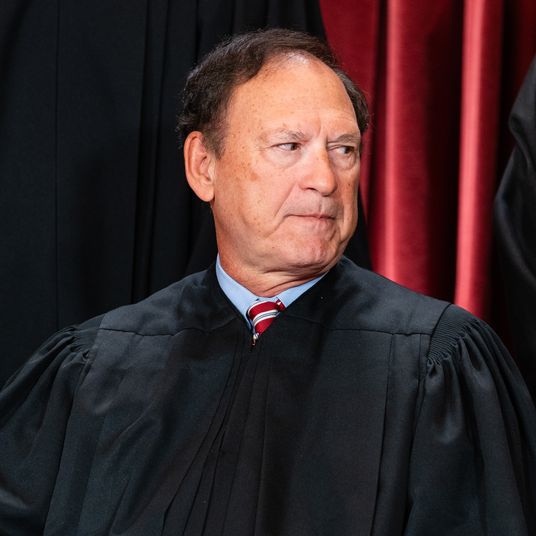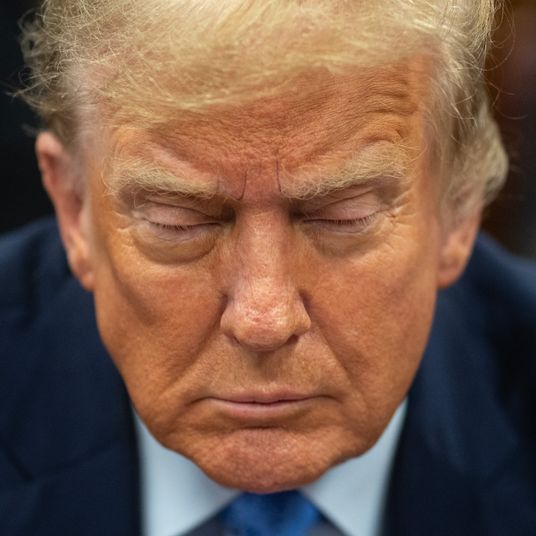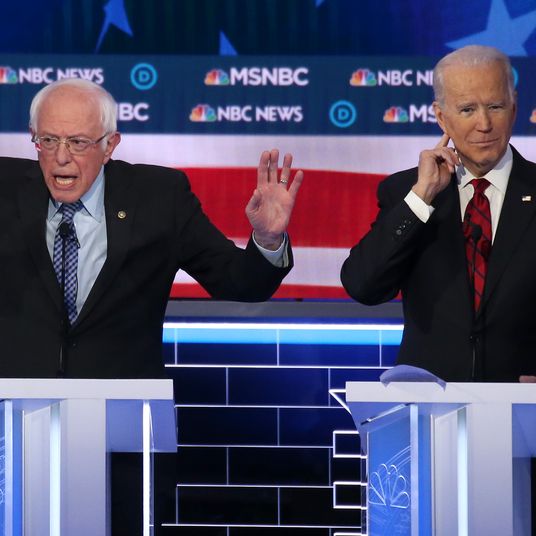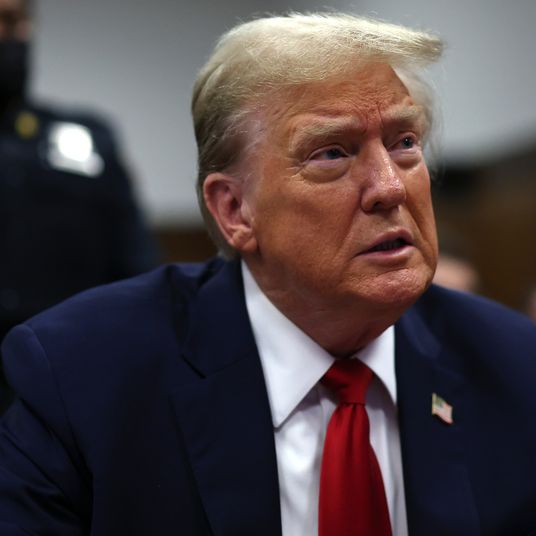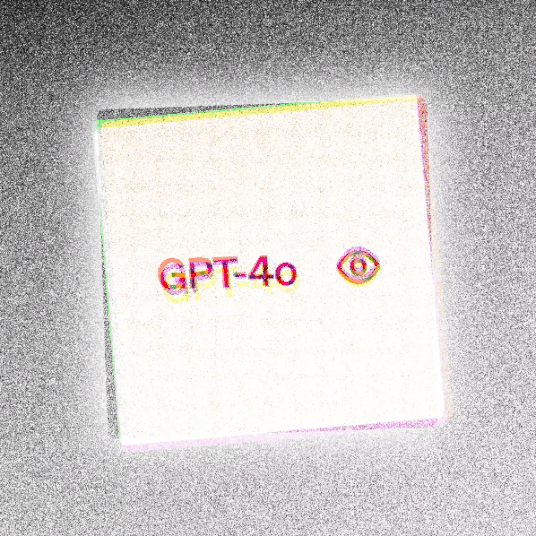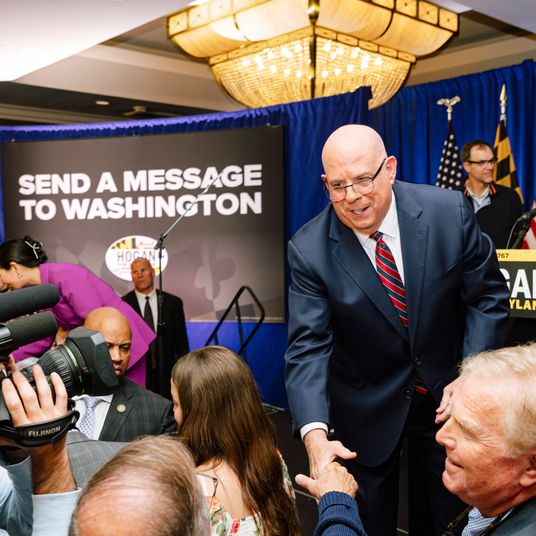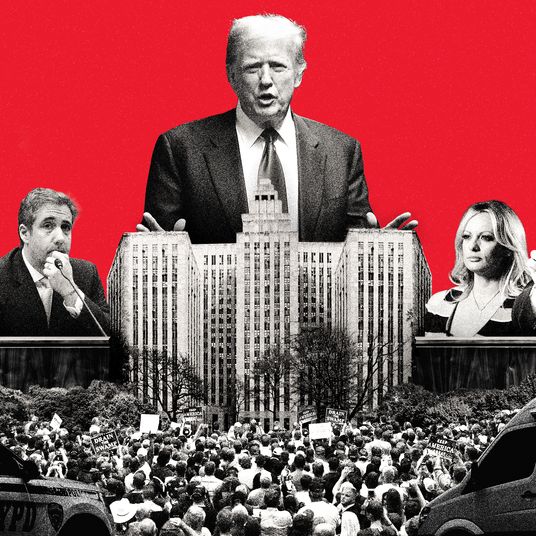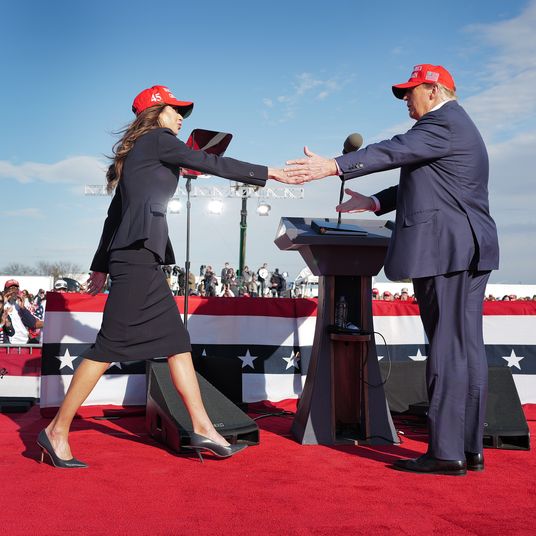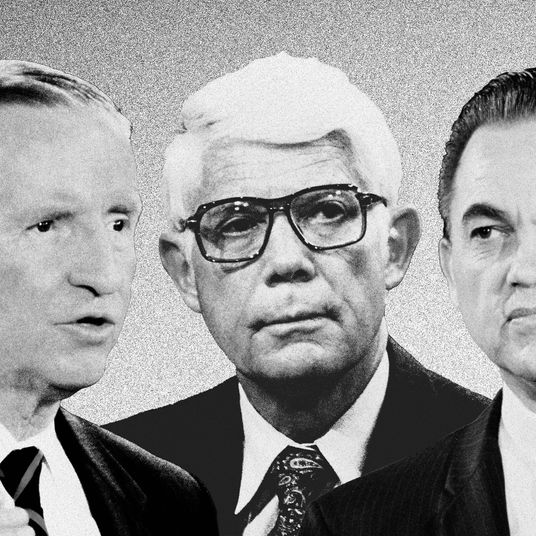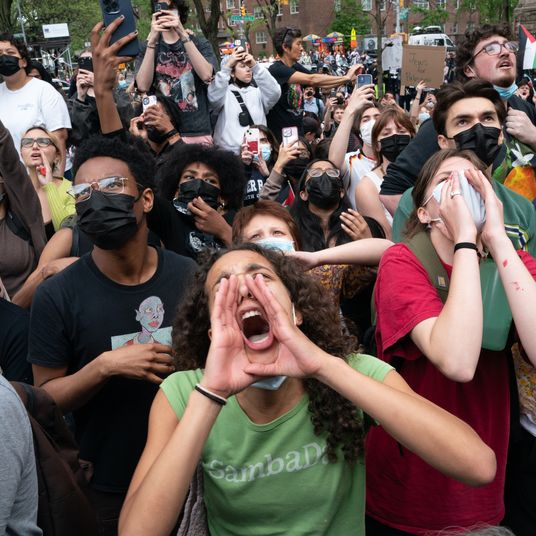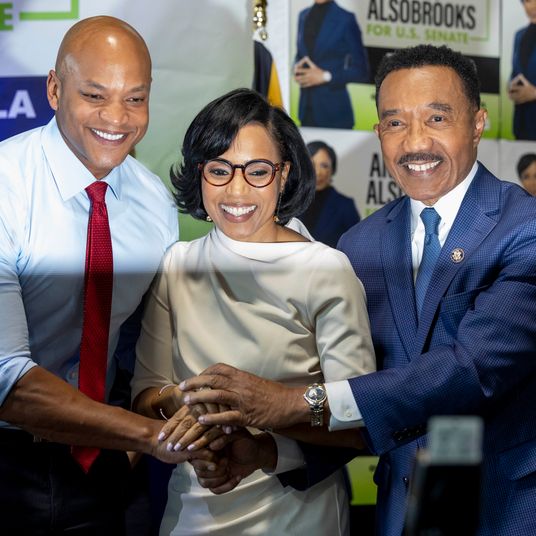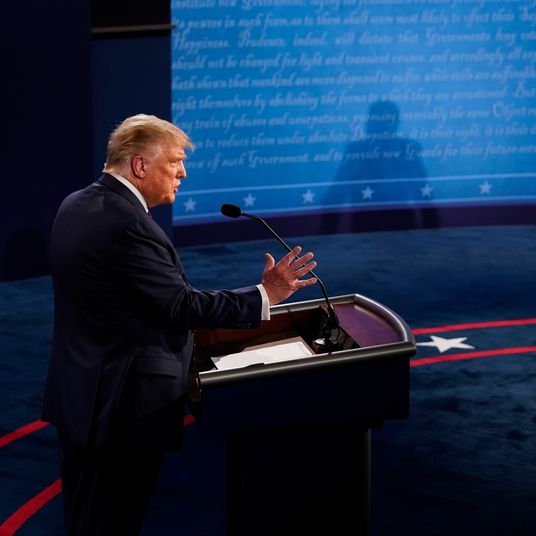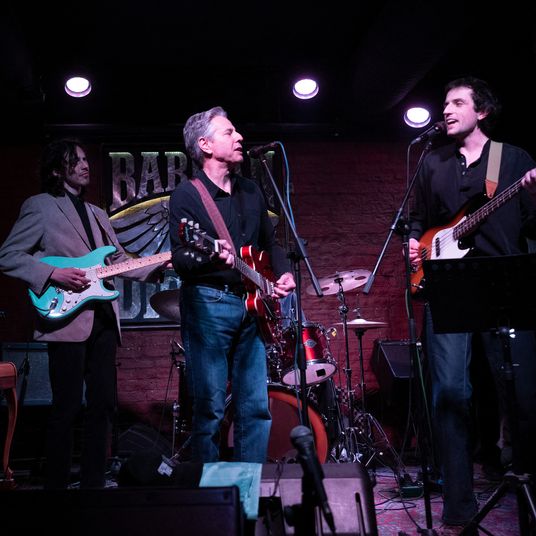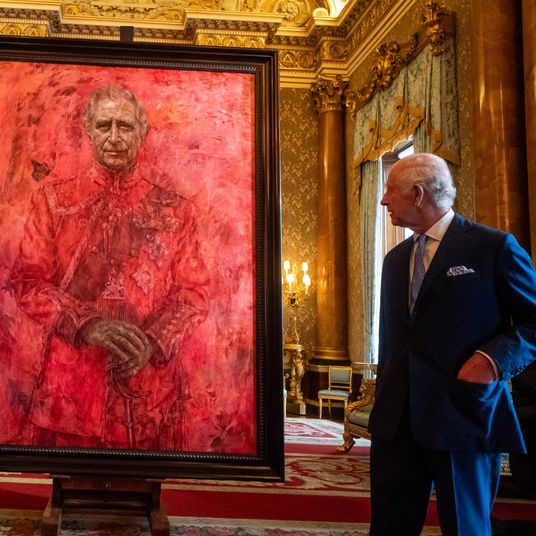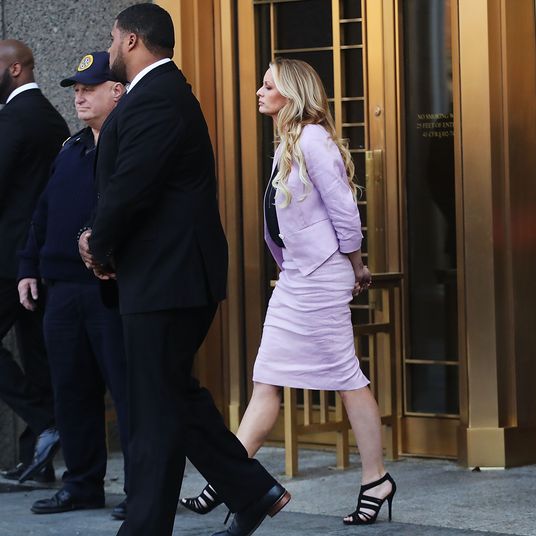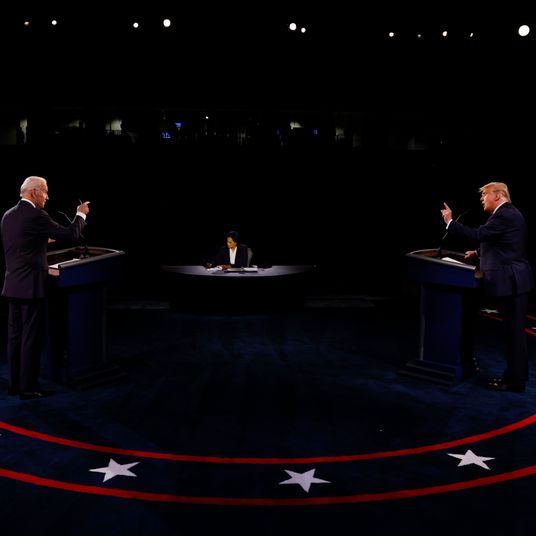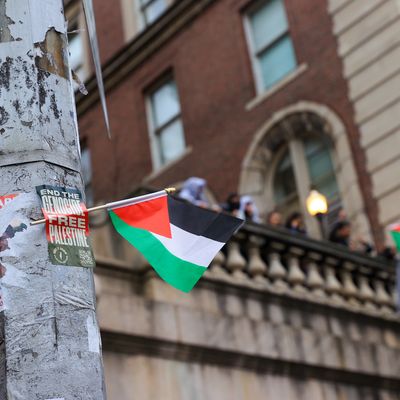
On Wednesday, students at Columbia University and its women’s college, Barnard, pitched tents on the lawns at the school’s campus commons. They planned to stay until Columbia divested from companies that “profit from Israeli apartheid, genocide and occupation in Palestine,” as an Instagram page for Columbia University Apartheid Divest put it. But Columbia had no intention of allowing students to remain in their tents. On Thursday morning, Columbia president Nemat Shafik authorized the NYPD to break down the Gaza Solidarity Encampment and make arrests for trespassing. More than 100 people were arrested.
Shafik also suspended three Barnard students involved in the encampment: Isra Hirsi, Maryam Iqbal, and Soph Dinum. Hirsi is the daughter of Representative Ilhan Omar, who at a House hearing a day earlier questioned Shafik about what she called the university’s harsh response to pro-Palestinian activism on campus. Student demonstrations continued Friday at Columbia and have spread to other campuses around the country.
In an interview on Friday, Hirsi explained why she feels her organizing work is so important, what it means to be suspended, and how she feels about the timing of her suspension.
I wanted to start with your organizing work. Could you tell me how you got into the organizing that you’re doing right now, and how long have you been doing it?
CU Apartheid Divest kind of reignited this school year when Students for Justice in Palestine and Jewish Voice for Peace had been suspended. I’ve already been an active participant in all of their actions. And I am a student club leader. And so when the coalition was being built and was looking for student organizations to sign on, that is when I got involved, by signing on. And so I’ve been involved with CUAD since October.
Can you explain why this work is important?
Absolutely. I think that being a student at a university that directly is complicit in this genocide going on is terrifying. And I think as students, we have a responsibility to do what we can to tell the university that we are not okay with this, but also there’s just — like, we have actively been organizing for months on end with no response or really not being able to move the needle. And with taking inspiration from alums, from basically our ancestors from 1968, we have learned that taking up space on campus is probably the best way to help make waves and be able to push our demands, which are divestment, transparency of Columbia’s investments, and amnesty for the current students being repressed and those that have already been repressed.
Obviously Thursday was not the first time that Columbia’s cracked down on pro-Palestinian activism on campus. You mentioned the chapter of Students for Justice in Palestine. Were you surprised when the school suspended it?
Honestly, no. I think that it was expected. I feel like the school says that they care about free speech, but they really don’t. And the minute that the students use their free speech, they feel threatened. And so I think that the suspension of our SJP [chapter] comes also in the wave of so many other universities cracking down. And so I think that the university’s president felt, I don’t know, somewhat obligated with the pressure that she’s receiving from other sides as well. However, that suspension has not stopped SJP or JVP in their organizing or continuing to fight what they believe in, because being recognized by the university is not end-all, be-all for fighting for Palestine.
What was it like at the Gaza Solidarity Encampment on Wednesday?
I would say honestly, it was beautiful. I think that we have so many people who are ready to go and dedicated and willing to basically withstand the elements to keep ourselves there and to continue fighting. We just had so many beautiful prayers. We were able to sing songs, people were playing games. It was just like such a sense of community. And as we further continued, it was just even more inspiring to see the student body also react and feel compelled to join and stand in solidarity with us. I think that also really made being in the camp and sleeping in the camp that much better.
Did you know that by participating in the encampment you were risking suspension?
Yes, I did know that. As did every single one of the participants.
Why was it important to go ahead with the protest in that case?
We just knew that the way that we had been moving wasn’t loud enough, and we knew that the university was going to crack down regardless. But our demands were very thorough and we really wanted to fight for them, and so we were willing to take that risk. It goes the same with the rest. It’s like we know that the university has some responsibility or a responsibility to keep the student body safe. And they’re saying that we were not keeping people safe and harming the campus community. But we all know that that wasn’t the case, and we stand pretty firmly in that.
And I think that the fact that we also were all in it together, I think, made us feel a lot better. And also the solidarity, like I said, of our peers, despite being suspended and arrested, the encampment is still going strong at this moment. And I think that says a lot. And to see how many folks, from actors to writers to politicians come into the camp and support us has been monumental for us to understand that what we are doing has done something, and we have somewhat, I would say, achieved a part of our goals.
It’s my understanding that you were one of three Barnard students who were suspended for organizing on Thursday. Is that right?
Yes. Only three Barnard students, which includes me, were suspended on Thursday at 10 a.m. But as of right now, multiple — well, not multiple, I would say the majority of the arrested students have been suspended at this moment. They just all received the suspensions today [on Friday].
Can you explain what happens when somebody’s suspended?
To be honest, I don’t really have that much clarity myself, which I think is a little bit concerning. But it’s basically an interim suspension, which means that I am suspended until a hearing is had and a decision is actually met for all of the Barnard students. They have specifically locked us out of our buildings, locked us out of our dining plans, we’re not allowed to attend class, we’re not allowed to submit assignments, and we are not allowed to… No, I think that’s it.
I received the notice while in camp, and it said that I was immediately not allowed into my dorm, and the only way for me to get in would be if I had a public safety escort and they would put 15 minutes on the clock. So I refuse to do that.
When you announced that you were suspended on Thursday, you mentioned that there are two other Barnard students who were suspended at the same time. Do you have any sense of why the school suspended the three of you in that moment in particular?
Well, one, I think this is pretty clear retaliation. The other two students had recent disciplinary hearings with the university, or sorry, with the college regarding their organizing with SJP and JVP. But also, the three of us had made ourselves pretty known to the press as students in the encampment, and I think that that had a lot to do with it. But to be honest, I’m a little bit unsure. The group of folks who were suspended after us, that was almost 24 hours after the fact. So I think that the school was waiting for, probably, NYPD arrest records to find out who to suspend because there were two folks that were suspended that were not in camp, and then a few hours later, it was revoked, once the school realized that.
Your suspensions attracted a lot of attention in part because the day before it happened, your mom, Representative Ilhan Omar, had asked President Shafik about the university’s repression of pro-Palestinian activism at a House hearing. What do you think about that timing?
I mean, it is what it is. Columbia University had to answer to the way that they had been moving. And also, my mother has been a consistent advocate for free speech. And I think that the way that this university has been moving is very concerning. And it’s a little bit hypocritical in the sense that at every single one of our protests or our events, there have been counter protesters that are also unsanctioned. And despite that, we are the only ones really facing that kind of oppression. The university only published the suspension of the students who engaged in an event regarding Palestine and resistance, while the students who sprayed us with chemical weapons, that information wasn’t known. And I think that, especially for somebody who has a daughter at a university that is moving in the way that it does, I think that it was very imperative for her to ask these questions.
What kind of effect do you think the police raid will have on Columbia and Barnard students?
I’m honestly not sure. I guess I’m curious myself. I think that a lot of people are outraged at what’s going on, and I think that the university is facing a lot of pressure. And I think that they’ll definitely have to, I guess, answer to the way that they have moved. I think it’s especially because the NYPD themselves said that the encampment was peaceful. They were called by Columbia rather than finding they needed to make arrests on their own. And so I think that we might see a trend in which what happened with other professors, or not professors, other presidents in the way that they have decided to handle their students and things like that. But I don’t know. I think that [President] Shafik is definitely under a lot of fire and has to respond to it very quickly so that she’s able to maintain her place.
How do you feel when you look at what’s going on right now on campus, with the protests tonight?
I stand in solidarity with those folks. I really appreciate the fact that they had stepped up the minute in which we were arrested. I think that it really showcases how much the student body really cares and also is willing to fight against this repression with us. Yeah, I think it’s just such a beautiful way of solidarity. And I really am hoping and praying that they can make it through the night without a sweep. I think that it’s also a little bit of a different situation as they don’t have as many tents, and I think that that might’ve been the problem the university had.
What else would you like people to know about the Gaza Solidarity Encampment and what was actually going on there?
I feel like everything that was going on there was pretty standard. If you can imagine, whenever we felt like we were facing any kind of intense repression from the university or there was the possibility of an imminent sweep, there would be a call-out to the community and they would come immediately to support us. I mean, the student community that is. As for the solidarity outside, I think that’s beautiful too. However, I think that the violence that the NYPD has enacted is really scary, and I hope that moving forward we are able to maintain these demands, and hopefully get them answered.
We even have an action or a march plan tomorrow just for Palestine, or specifically for Gaza and what’s been happening with the bombings right now, and also in solidarity with the encampment.
Have you received any support from faculty and staff at Barnard in Columbia, and if so, what does that support mean to you?
I think that it means a lot to me. I’ve had former professors that I’ve had reach out to me and tell me that they’re in solidarity and that they also believe in the students’ right to free speech. I’ve had multiple of my own professors reach out to me and let me know that they’re here for me in a difficult time, especially because I do not have all of my belongings. And I think it’s a little bit scary to be in a city without a home so quickly and so immediately. And so, because I’m not able to go to any of my classes or spin any assignments, they’ve really stepped up in letting me know that I do not need to worry, which has been really helpful in making me feel a little bit sane. And also, I don’t know, everybody has really taken a very large step in backing us, especially the larger community when it comes to providing resources, whether that be food, donations for those that have been evicted, and thankfully, I feel safe enough and I have a place to stay in this interim period.
Anything else you’d like to add?
If anything, I do want to say that the Gaza Solidarity Encampment is one of many, and we’re actively seeing a growing movement happening across the country at college campuses. And this follows Vanderbilt and Pomona and their, I would say, strong actions that they have already taken. And so a lot of us just feel like this is the least that we could do as students who go to such an elite institution that is complicit in this scenario. I guess we’re seeing that there are solidarity encampments all across the country at the moment as well as walkouts, and so it’s really beautiful to see that everybody’s fighting.
This interview has been edited for length and clarity.



